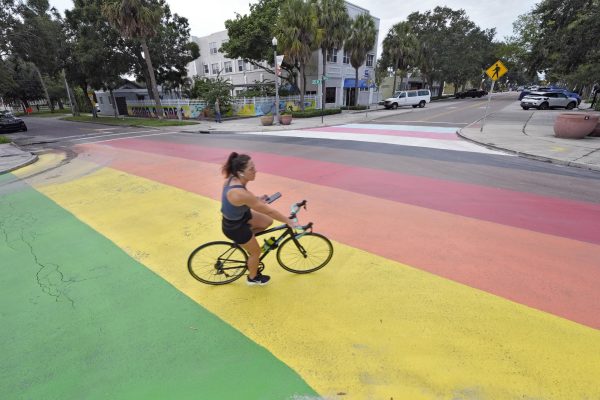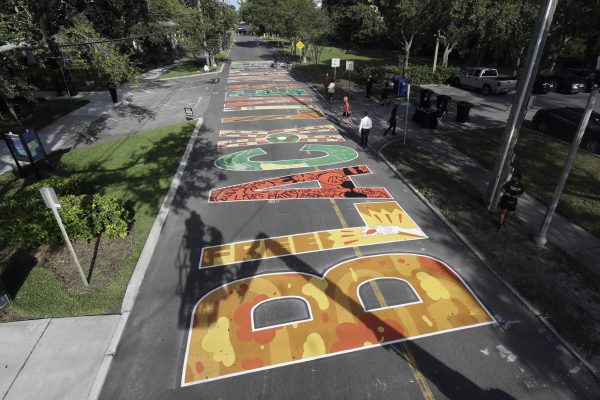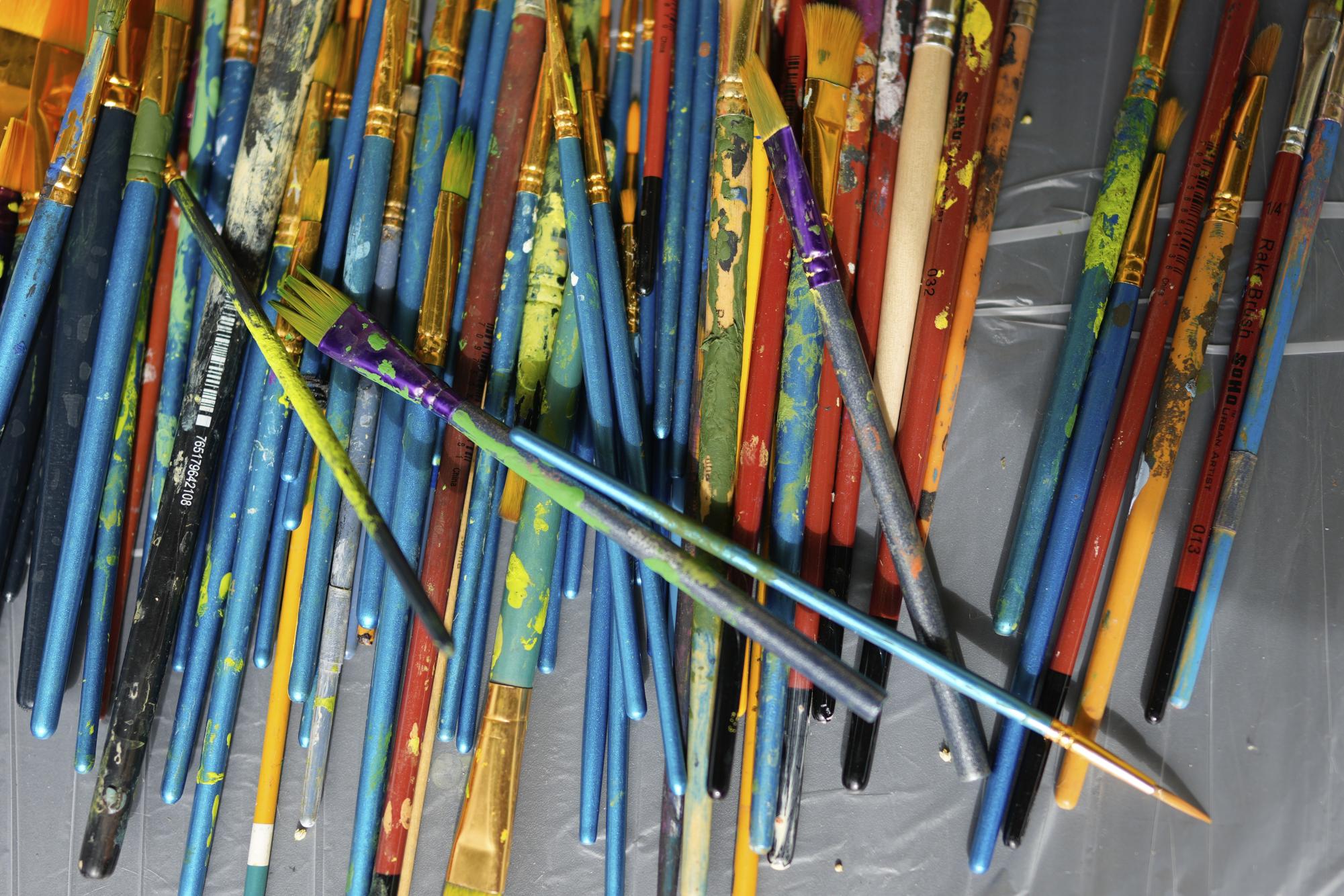
In late August, the Florida Department of Transportation (FDOT) sent out a wave of letters to cities under its purview. Essentially,
they all read the same: art on the determined roads must be painted over, or state funding would be withheld. These pieces are typically called asphalt art, and they are often found in cities as murals.
In Pensacola, a recently painted over, mural was painted in support of the Black Lives Matter movement. Other affected pieces have included LGBTQ+ art and even crosswalks painted green for pedestrian safety. It begs the question of why this is necessary when there are surely more important issues on the road.
FDOT justified their repainting order as such: “Non-standard surface markings…that do not directly contribute to traffic safety…can lead to distractions or misunderstandings, jeopardizing both driver and pedestrian safety.”
This sounds very nice. The promotion of safety is extremely worthwhile, and the vast majority of people can probably agree with that. Unfortunately for FDOT, a 2022 study by Bloomberg Philanthropies found that asphalt art led to a 61% reduction in crashes affecting vulnerable road users—pedestrians, bikers, and motorcyclists.
To claim an action is meant in the pursuit of safety when it, in reality, increases danger for the public casts doubt upon its logic. This lack of foresight is further shown in the way even sections of a road painted purely for utility have been targeted. Above, green crosswalks were mentioned as one of the “non-standard surface markings” disapproved of by FDOT.
These were a part of Gulf Breeze’s roads until recently, when they were repainted to comply with the new policy.

In a letter to the press, however, the City of Gulf Breeze added the context that “green pavement markings are recognized by…the Florida Department of Transportation (FDOT) for use in certain scenarios, such as to identify bicycle lanes and shared-use paths across turning lanes,” as Gulf Breeze was.
FDOT’s disregard for its own precedents and pedestrian safety, seemingly without any evidence that would explain this shift, reads as irresponsible. On top of this ineffectuality, FDOT is spending taxpayers’ money where it could be better used elsewhere.
Orlando’s repainting project is set to cost $85,000, according to Spectrum News 13, a local news station in that area. Money like that could be used to improve the roads in Florida that truly need it.
Pensacola and Gulf Breeze were both made to paint over their own roads, when the money spent there could be put towards repaving the North Davis Highway and I-110 Intersection, or to expand Highway 98’s six lanes further. This is surely the case for cities around Florida, the diversion of funds are being diverted from genuine road issues.
Florida’s Department of Transportation is misusing its position. LGBTQ+ memorials, Black Lives Matter murals, and green crosswalks are not harmful to traffic safety. In fact, they and other forms of asphalt art have been shown to promote it. The safety of the public should not come second to a political message.
FDOT needs to refocus on what’s important because, with the information available, it seems to have overlooked its core duties and overstepped its bounds.


